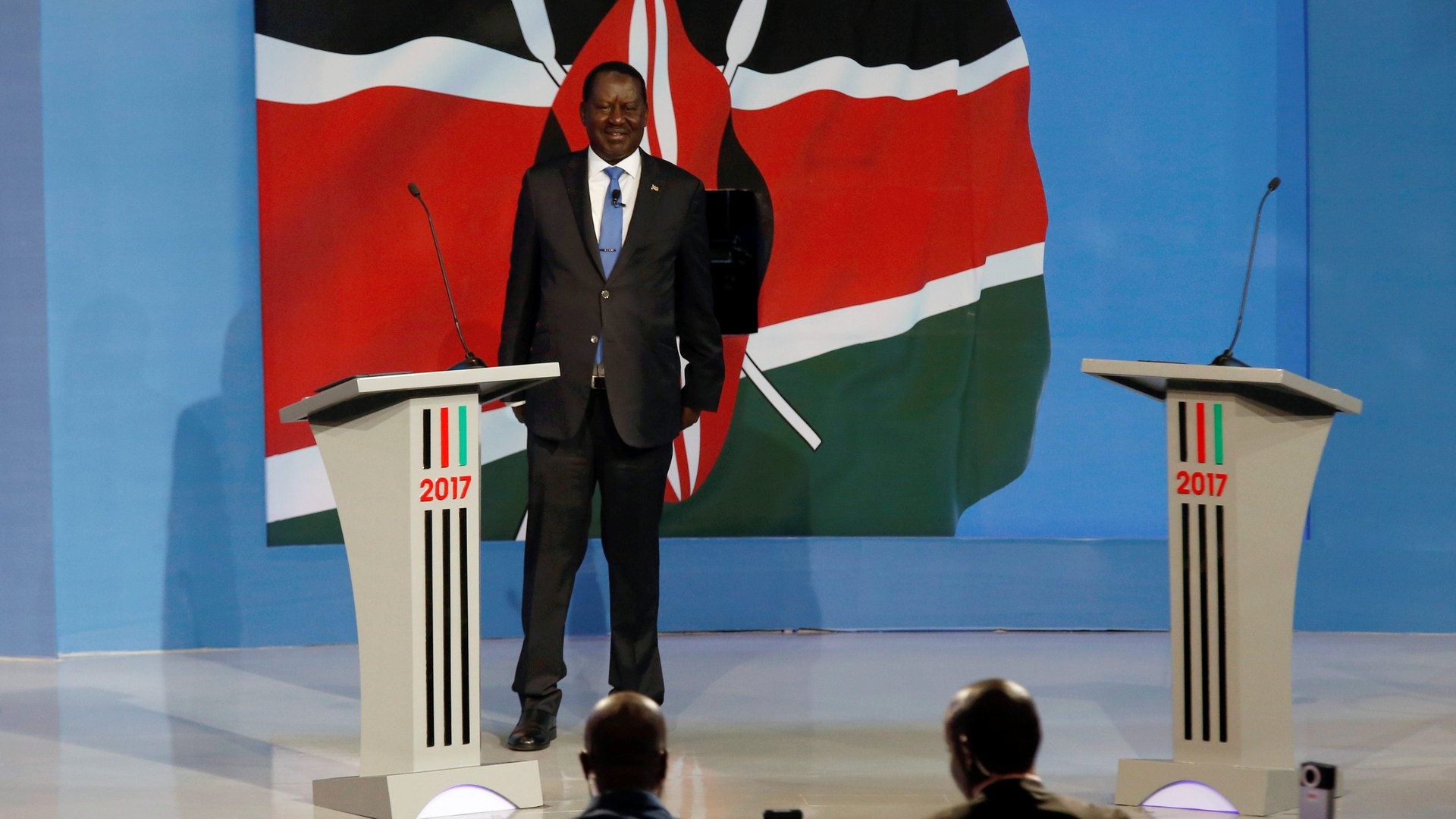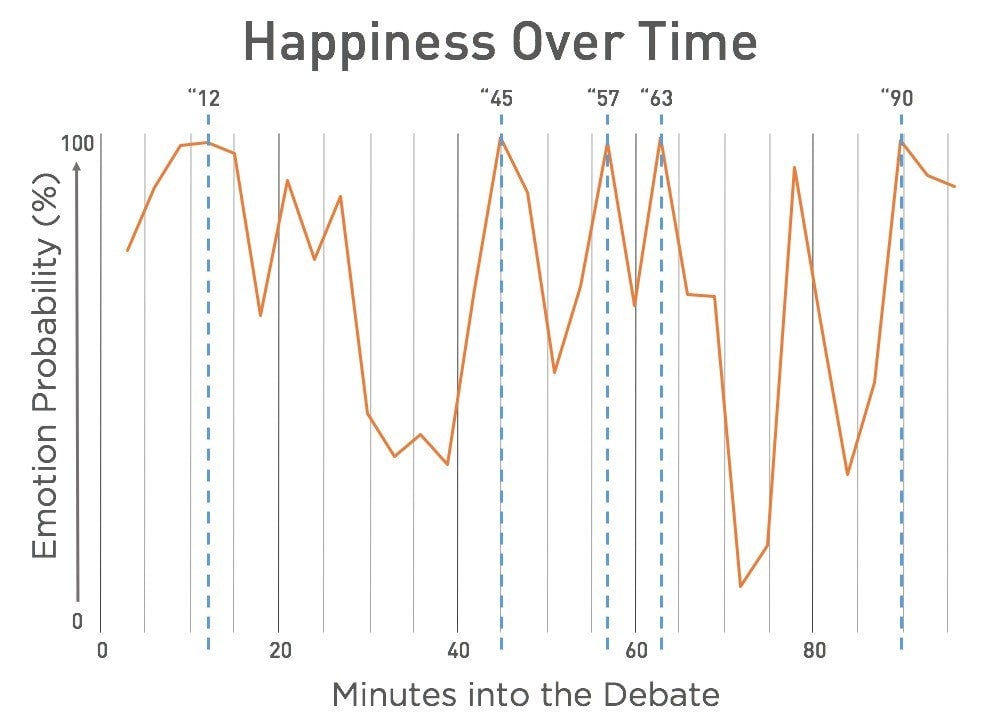A robot watched a Kenyan presidential candidate debate himself and this is what it found out
Kenyan presidential candidate Raila Odinga is happiest when discussing government corruption, tribalism, and his country’s regional standing. That’s according to a robot built by a Nairobi startup, Odipo Dev, that analyzed Odinga’s facial expressions during a 90-minute presidential debate in late July.


Kenyan presidential candidate Raila Odinga is happiest when discussing government corruption, tribalism, and his country’s regional standing. That’s according to a robot built by a Nairobi startup, Odipo Dev, that analyzed Odinga’s facial expressions during a 90-minute presidential debate in late July.
Odinga was the only one to show up for the debate, broadcast live on seven national television stations. Odinga, head of the Nasa party, is competing for the fourth time for Kenya’s highest office. His main rival is Kenya’s current president Uhuru Kenyatta who opted out of the debate.
Using high speed frame shots, Odipo Dev’s software captured video frames of Odinga’s performance and categorized his reactions as sad, happy, angry, neutral, contemptuous, disgusted, or surprised. (Odipo Dev had originally planned to analyze the emotions of Odinga as well as Kenyatta. )
As many as nine million viewers watched, according to a local survey firm, Geopoll. ”In an arena where politics is more theater and performance than anything else. The kind of emotions you portray tend to matter,” says Odanga Madung, a data scientist at Odipo Dev.
According to their results, Odinga appeared the happiest when:
- Questioned about a statement he made during a rally in Kajiado, near Kenya’s border with Tanzania regarding “those who own the land and those who should return to where they came from.” Critics said the comment threatened national unity. Odinga said in the debate, “I never said that they should return people to where they came from. Those who have bought their land, no one will take it away. All I said is that they should not sell them if they are poor.”
- Asked the tendency of Kenyans to vote along tribal lines. “We are going to expand the government structure of this country and be more inclusive to ensure that every Kenyan irrespective of their ethnic origins gets equal opportunity,” Odinga said.
- Asked about how his administration would handle corruption. Odinga said, “The action is what is lacking. I say that the buck stops with the president.”
- Questioned about personal attacks between the presidential candidates. Odinga said, “Politics bring these things. When he says I am a mad, I do not think he means it. We, in Nasa, basically respond seriously to allegations and we respond in kind, and sometimes with jokes.”
- Asked about Kenya’s regional standing.

Odinga was most negative when:
- Moderators asked about a meeting in 2008 over importing maize into Kenya. Odinga, prime minister from 2008 to 2013, has been accused of overseeing a maize import program that was abused by officials and led to contaminated maize being sold to Kenyans.
- Asked about tribalism in hiring practices during his tenure as prime minister.
- Questioned about issues he might face as president.
- Asked about a coal plant being built on the coast of Kenya and its potential effects on the environment. Odinga has said that his party will study the plant and cancel the project if it’s deemed environmentally harmful.
The goal isn’t just to find out what issues irk or enthuse candidates. The company hopes to deploy the software to companies for understanding customers. “The benefit when it comes to emotions in the case [of a] brand is enabling deciphering emotions at the point of experience,” said Madung.